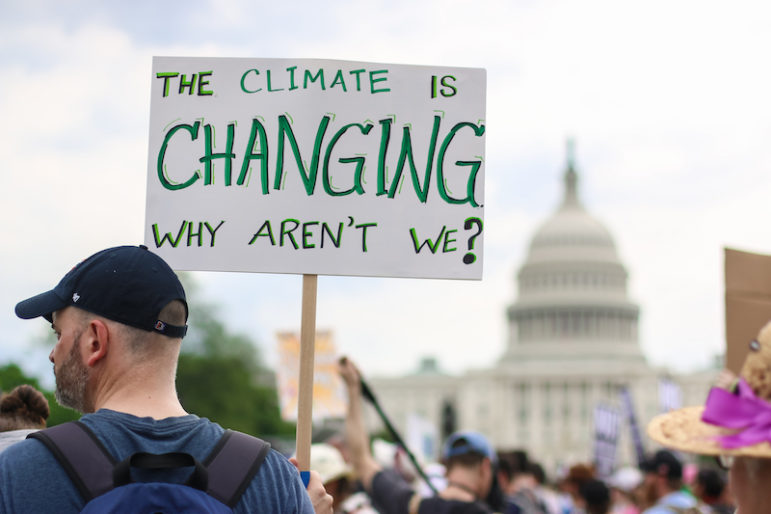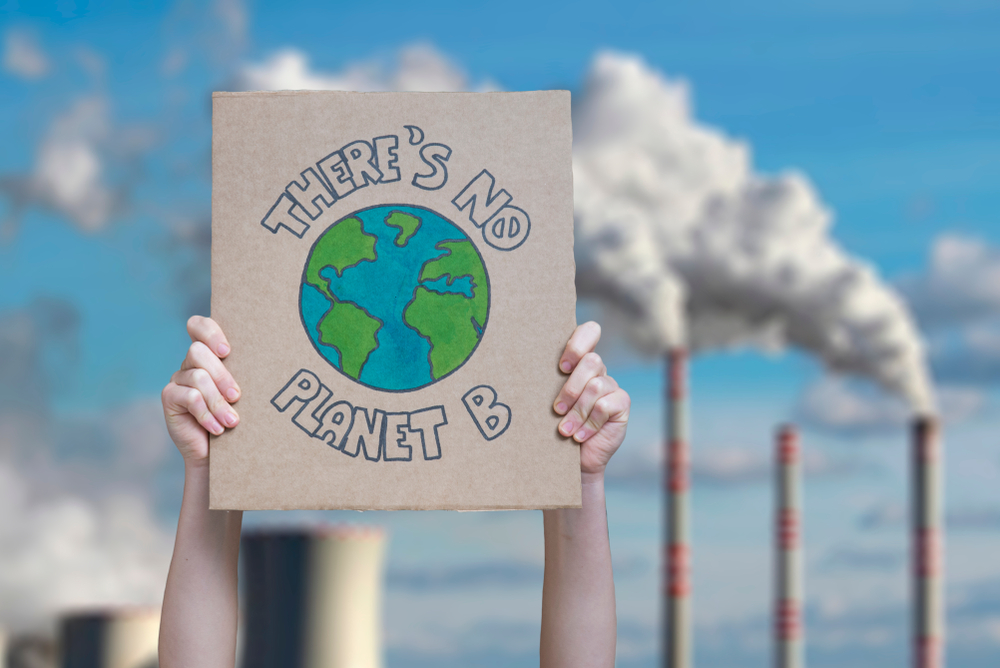By Katya Mavrelli,
As if waking up from a slumber, the international community is finally realizing that the climate crisis can no longer be disregarded. Perhaps one of the most shocking images that depict the immensity of the situation is the photo of Tuvalu’s foreign minister, Simon Kofe, addressing international leaders as part of his COP26 speech knee-deep in seawater. Now that the climate emergency is an issue that can no longer be ignored, those who have a story to tell are under the spotlight. So, what is climate journalism, and how can it help in highlighting this topic?
The role that journalists have played in highlighting the climate crisis has been immense – they fulfill the role of covering one of the most challenging, continuously evolving, and urgent matters that the international community is faced with. Their job includes covering topics from the latest environmental predictions, to international conferences on policy and decision-making, to coverage of protests and demonstrations that have the aim to mobilize public opinion. Climate journalists do more than just reporting – they tell a story, the story of our planet, and they bring to the forefront the tools that have to be integrated with the process of salvaging our societies from irreversible damage.
Environmental attention has been progressively increasing and adopting an even more central role as time goes by. The coverage of this summer’s intense natural phenomena, like the unprecedented number of wildfires in the Mediterranean and the hurricanes in the US, was the first time when journalist networks systematically focused their attention on this sphere of international developments. Previously, analyses on the climate crisis and the environmental emergency we find ourselves in taking the form of qualitative analyses that served the purpose of simply informing. Now, however, articles serve the purpose of mobilizing, of raising awareness, and reminding us that this might be the only –and last– shot we have at fixing all the damage we have done.

The increased environmental news coverage has made a significant change. Based on polling by the Yale Program on Climate Communication, because of this increased exposure to climate change-related news, ¾ Americans now believe that global warming is real and 70% say that they are either “very” or “somewhat” worried about it. This suggests that climate change newsrooms are acquiring a different role, one that allows them to tell the climate change story from a more central perspective. This is well-packaged in the form of a response to the rising demand for more information related to climate change and the impending environmental disaster – people want to be informed, and they want this to be done actively and immediately.
The question, now, has shifted from whether we should address the issue of climate change, to how we should actually cover the story – the media is no longer faced with the choice of whether they will report on climate disasters or sweep them under the rug. Is there a balance between the call for action and the impending disaster that can be caused if the issue of climate change remains unaddressed? Can journalism not only serve as the platform for information, but also the forum via which people will become more aware and will be incentivized to act?
The answers to such complex questions cannot be easily found. It is undoubtedly true that climate journalism has acquired a very prominent role, one that is becoming even more central and dominant as the issue of the climate crisis calls for action. Yet, the drafting of policies and the observation of immediate results is easier said than done, and this is what might discourage people from placing more hope and emphasis on this field. Climate journalism is the platform, but it isn’t the tool that will produce the actual results that people consider desirable.

Climate journalism is the way forward, however. The rise of climate science has showcased that climate jargon isn’t so easy to understand – people who don’t work in the field may not be able to grasp the relevance of Carbon Capture and Storage (CCS) technologies, or may not know why the constant debate between 1.5 or 2-degrees Celsius matters.
This is the gap that climate journalism has the potential to mend: it may not be the elixir that will make us all immediately interested and wholly involved in the resolution of the climate crisis, but it is the platform that will highlight the importance of addressing this topic. For decades, journalists have been seen as storytellers, as the ones who shed light on crises and undiscovered topics, who help us open our eyes to what is happening in the rest of the world. Their role, however, will be elevated in the years to come: they are currently engaged in telling our story, the story of humanity, and how we will be able to escape from our downfall. The damage that humans have inflicted on the planet is immense, and some scientists even think it is irreversible. But climate journalists were the ones who brought some hope, who addressed the matter not only with objectivity, but also with optimism, and who made us believe that change is possible. Their photos, their articles, and their interviews –among other elements– were used as food for thought on more than one occasion.
And perhaps this is what climate journalism aims to achieve: making the best use of every window of opportunity that arises and utilizing the international arena as the platform for change. At the end of the day, isn’t it better when the call for immediate action is combined with a little positivity?
References
- Why climate journalism matters, cdnee, Available here
- Climate Journalism Is Coming of Age, cjr, Available here
- Mike S. Schaefer, James Painter, Climate journalism in a changing media ecosystem: assessing the production of climate change-related news around the world, Wiley online library, 2020, Available here




